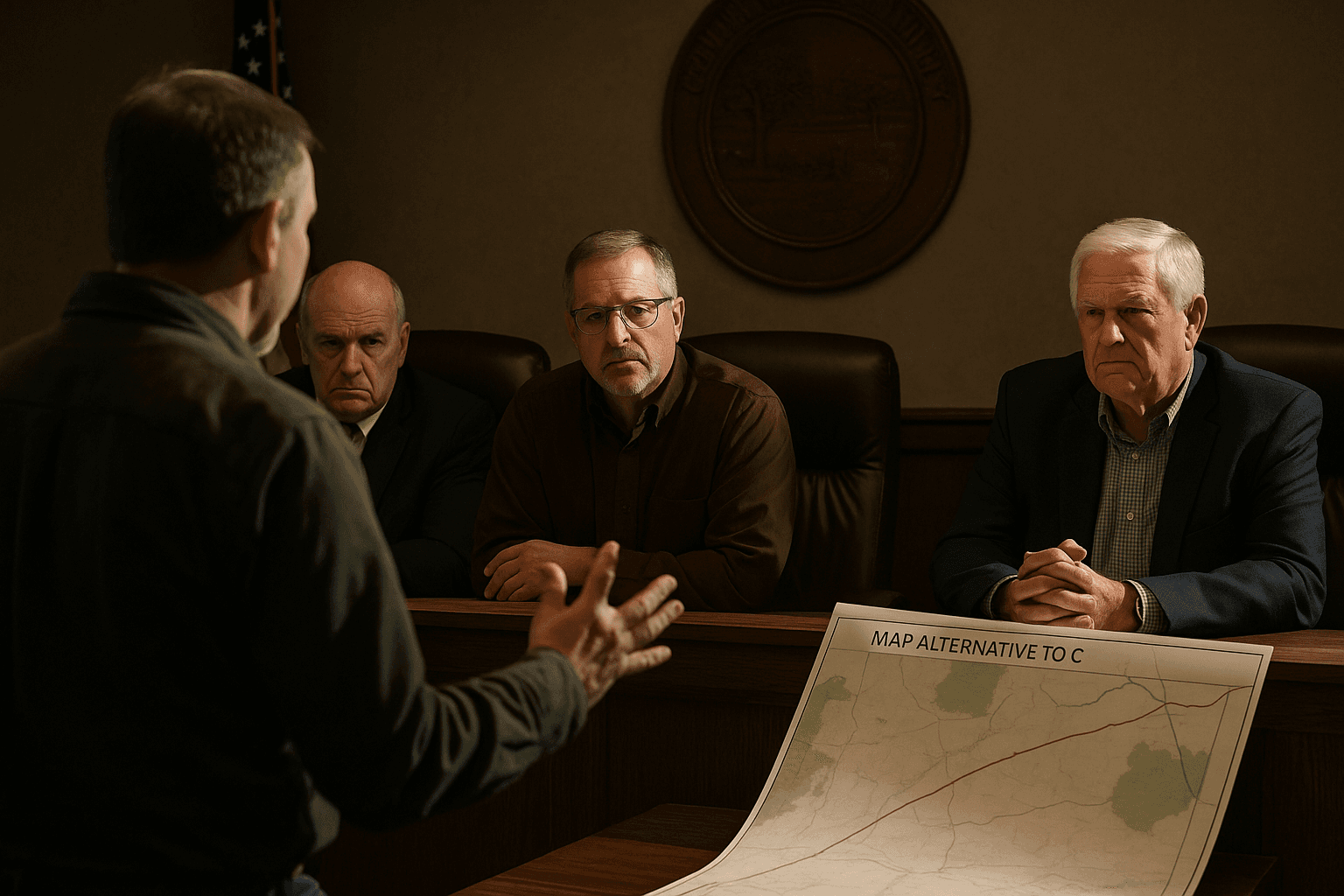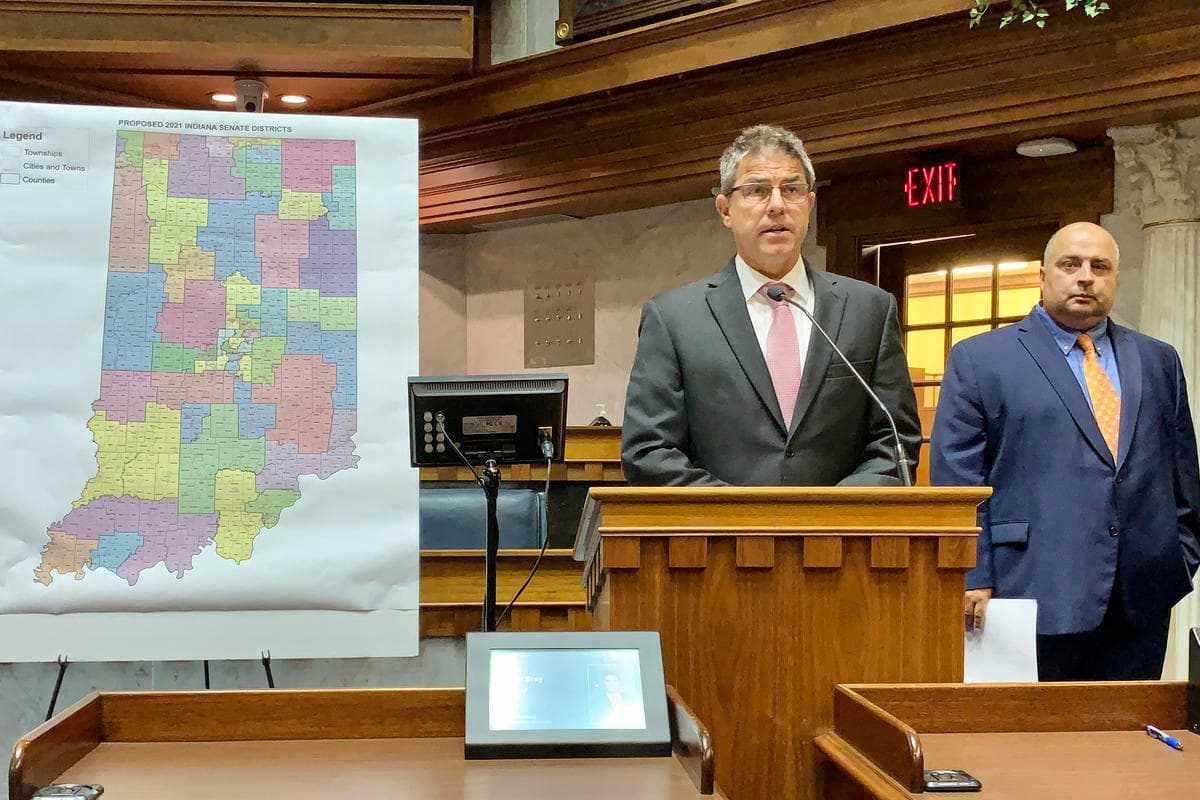County Commissioners Challenge Mid States Corridor Costs, Local Burden
Dubois County commissioners pressed state officials on November 19 about the potential financial and property impact of the proposed Mid States Corridor, focusing on local match requirements and long term maintenance obligations. The exchange highlights growing local scrutiny over project timing, standards and the prospect that the county could assume responsibility for U.S. 231 after construction, a shift that could affect budgets and landowners.

Dubois County commissioners confronted Indiana Department of Transportation officials and project consultants on November 19 over who will pay and who will maintain roads associated with the proposed Mid States Corridor. The meeting featured INDOT project manager Kyanna Wheeler and Lochmueller Group project manager Jason Dupont who provided updates on project timing and the state plan, while commissioners sought firm commitments about local financial exposure.
Officials explained that INDOT expects local units could be asked to assume responsibility for existing U.S. 231 as part of a potential relinquishment once the Mid States Corridor is built. Project representatives described INDOT maintenance and design standards as more rigorous than typical county road standards, a difference that translates into higher long term costs for jurisdictions that accept roadway turnover. INDOT indicated it would be open to negotiating a turnover timeline, but said the state envisions local responsibility for U.S. 231 after Mid States construction is complete, with current targets around 2032 to 2033.
Commissioners repeatedly pressed on the size of the local share and the county’s long term obligations. Commissioner Chad Blessinger said he saw some value in improved regional connectivity but did not believe the benefits for county residents outweighed the costs. Commissioner Nick Hostetter indicated support for better north to south transportation while noting many questions remained unanswered.
Public comment at the meeting emphasized local concerns about farmland loss, environmental impacts and the possibility of property takings. Those concerns reflect a broader local debate in which proponents point to improved connectivity and economic opportunity, while opponents and many residents focus on the scale of land acquisition and the long term maintenance burden that could fall to county taxpayers.
For Dubois County, the immediate implications are fiscal and political. County officials will face decisions about budgeting for future maintenance obligations, negotiating the timing of any roadway turnover, and responding to constituent concerns about land use and compensation. The November 19 session clarified key issues but left many specifics unresolved, setting the stage for further discussion between county leaders, INDOT and residents as the project moves toward the next phases.


